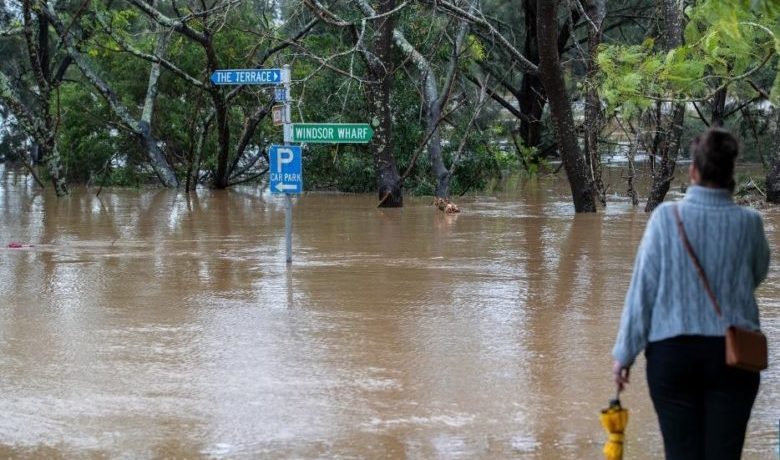Sydney: As the rainfall across Australia’s largest city of Sydney finally eased on Thursday, almost 30,000 residents in its western suburbs were permitted to return to their flood-hit homes to begin clean-ups.
While the floodwaters were receding in the capital city, State Emergency Service (SES) workers were kept busy in more northerly parts of the state of New South Wales (NSW), dealing with the destruction caused by the past week’s wild weather, reports Xinhua news agency.
SES deputy state duty commander Ashley Sullivan told the national broadcaster ABC that emergency workers had handled nearly 7,000 requests for assistance since the start of the floods, with 370 rescues during the past 24 hours.
As of Thursday, more than 6,000 people have been evacuated from the Hunter region and the mid-north coast with reports of another 5,000 preparing to leave soon.
NSW Minister for Emergency Services and Resilience Steph Cooke warned that people needed to obey emergency instructions.
“Whilst it may be tempting for people to return home, we’re really asking you to respect those evacuation orders,” Cooke said.
“There’s a reason why they are in place at this time and that is to protect you.”
This week’s floods were the latest in a series that have struck Australia’s eastern states in recent years, with this being the fourth to have hit the Greater Sydney Region (GSR) within just the past 18 months.
The besieged NSW SES crews are being assisted this time by counterparts from the neighbouring state of Queensland.
Queensland Fire and Emergency Services Minister Mark Ryan said about 40 frontline personnel, including experts trained to rescue people from fast-flowing torrents, had joined the mission on Thursday.
“Our swift-water rescuers are coming off the back of an extremely busy wet season, during which the state’s crews responded to multiple flooding events and hundreds of calls for help,” Ryan said.
The federal government has also stepped in to help with Prime Minister Anthony Albanese announcing that residents in 23 flood-affected areas in NSW would be entitled to a one-off A$1,000 payment for each eligible adult and A$400 payment for every child.
Sydney Water, the nation’s largest water utility, said that the floods had swept a lot of leaves, dirt, and other debris into the water catchment area, so that filtration systems were working harder than usual to make the raw water safe to use.
Sydney Water General Manager for Customer Delivery Bernie Sheridan said he understood how people could think it “strange” to be asked to conserve water during a flood, however, it was necessary to retain a consistent supply of drinkable water.
“It is simply that the system’s ability to produce drinking water is slower than normal,” Sheridan said.
(IANS)



















